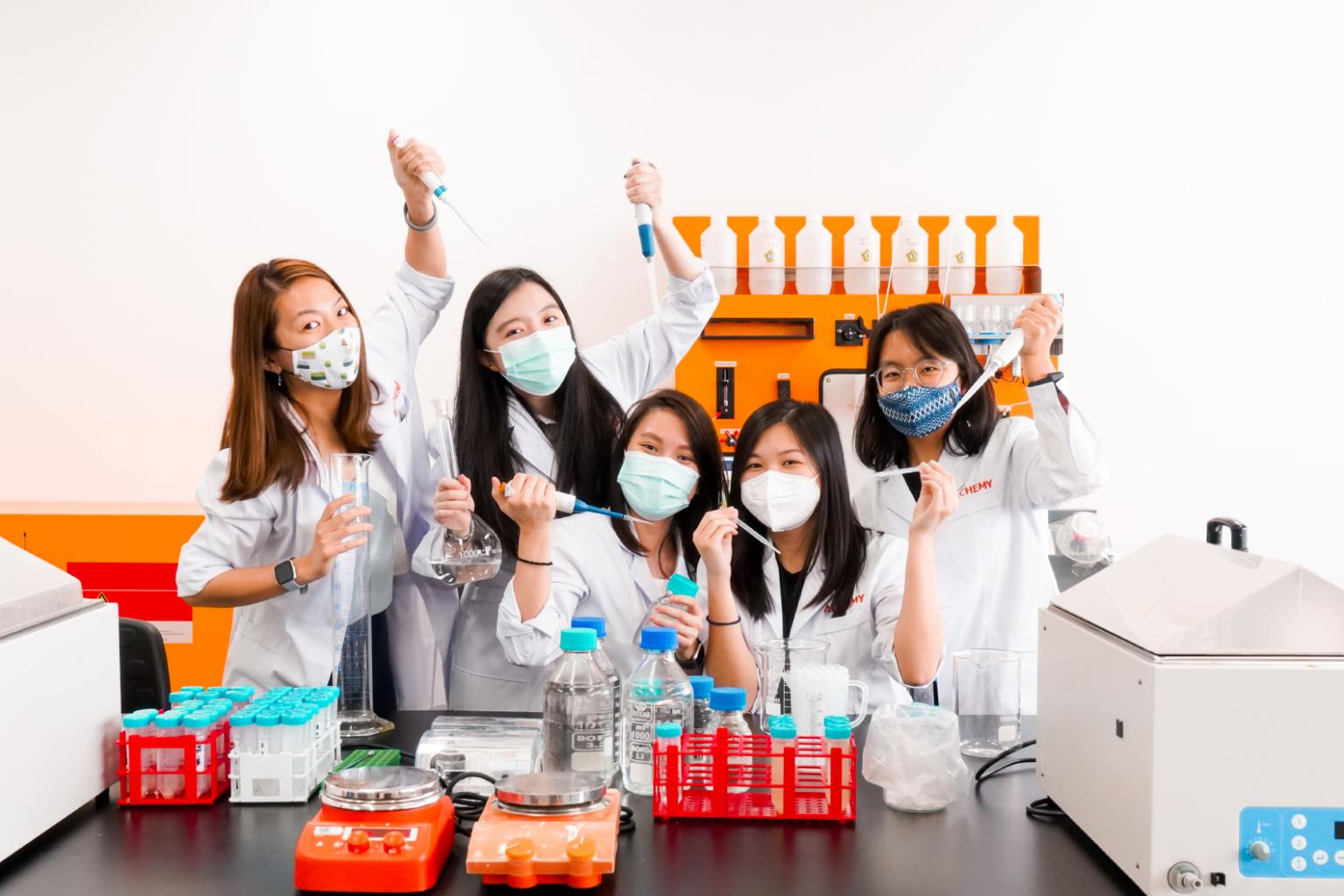Local start-up Alchemy Foodtech partners NTUC to set up training committee and drive growth
Sign up now: Get ST's newsletters delivered to your inbox

Alchemy Foodtech will tap NTUC's e2i to fill 15 vacant positions over the next two years.
PHOTO: ALCHEMY FOODTECH/FACEBOOK
Follow topic:
SINGAPORE - Local food manufacturer Alchemy Foodtech has signed an agreement to tap the labour movement's resources as it seeks to drive business growth and create better jobs for its workers.
As part of the agreement, the firm will tap NTUC's e2i (Employment and Employability Institute) to fill 15 vacant positions over the next two years, and its workers will be able to access training courses in areas such as data science and analytics.
Alchemy Foodtech is one of the first local start-ups to have signed a memorandum of understanding with the Food, Drinks & Allied Workers Union (FDAWU) to set up a company training committee (CTC).
Speaking during a visit to Alchemy Foodtech on Tuesday (April 12), NTUC deputy secretary-general Chee Hong Tat said: "Through the collaboration between NTUC and our companies, using CTCs as a collaboration platform, we hope to allow more and more companies to scale up and to expand their business operations.
"In doing so, they will be able to then create more good jobs for workers. They will also be able to restructure and redesign some of their existing jobs to make them more attractive to local workers."
The MOU was signed during the visit, where Mr Chee also sampled various foods such as chicken rice and steamed buns which are made with the start-up's powder mix.
CTCs comprise representatives from a company's management as well as union leaders.
Their job is to review a firm's current training plans, identify skill gaps, plan for reskilling and career progression for workers, and develop and implement new training programmes.
Mr Chee added that the labour movement is investing in Singapore's future pipeline of unionised companies.
"When these promising small and medium-sized enterprises succeed and expand their operations in the future, we can grow our partnerships with them and achieve win-win outcomes for both businesses and workers."
During his Budget speech in Parliament in March, Mr Chee announced that firms will be able to tap a $70 million grant to raise productivity, redesign jobs and upskill workers.
NTUC seeks to have at least 2,500 of such CTCs by 2025. More than 900 such committees have been set up in larger and smaller organisations so far.
Alchemy Foodtech has also agreed to formally recognise FDAWU so its workers can join the union.
Through the agreement, the labour movement and the FDAWU will also support the start-up in its leadership development and employee upskilling needs.
Mr Alan Phua, chief executive and co-founder of Alchemy Foodtech, said the start-up has several partnerships in the pipeline to develop healthier bread and noodle products, and looks to venture into more food segments and regional markets.
As it scales up, it needs to attract more talent and further the capabilities of its employees. Alchemy Foodtech currently has 18 employees.
The collaboration with the labour movement and the union will help it address its talent gap and help it establish strategic partnerships for further growth, he said.
Said FDAWU general secretary Tan Hock Soon: "FDAWU plans to leverage the NTUC Training and Placement Ecosystem to support Alchemy FoodTech in its business and workforce transformation efforts.
"At the broader level, FDAWU hopes to be an aggregator to bring together businesses, industry players and relevant agencies to create opportunities for businesses and our workers."

